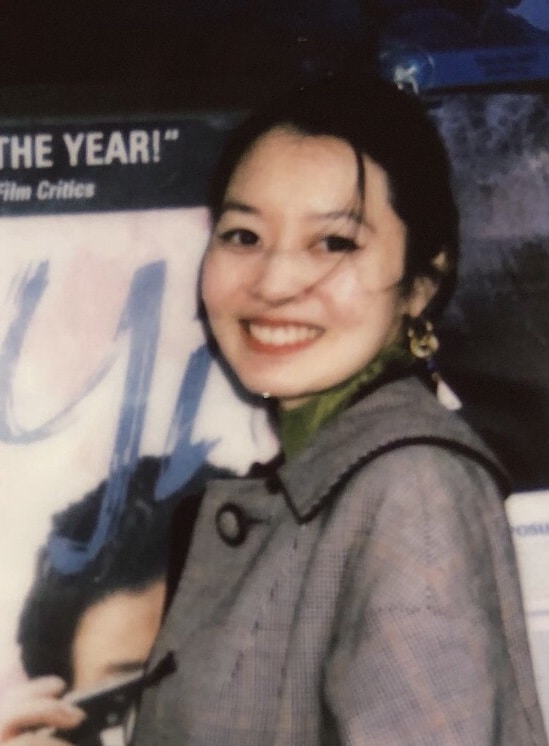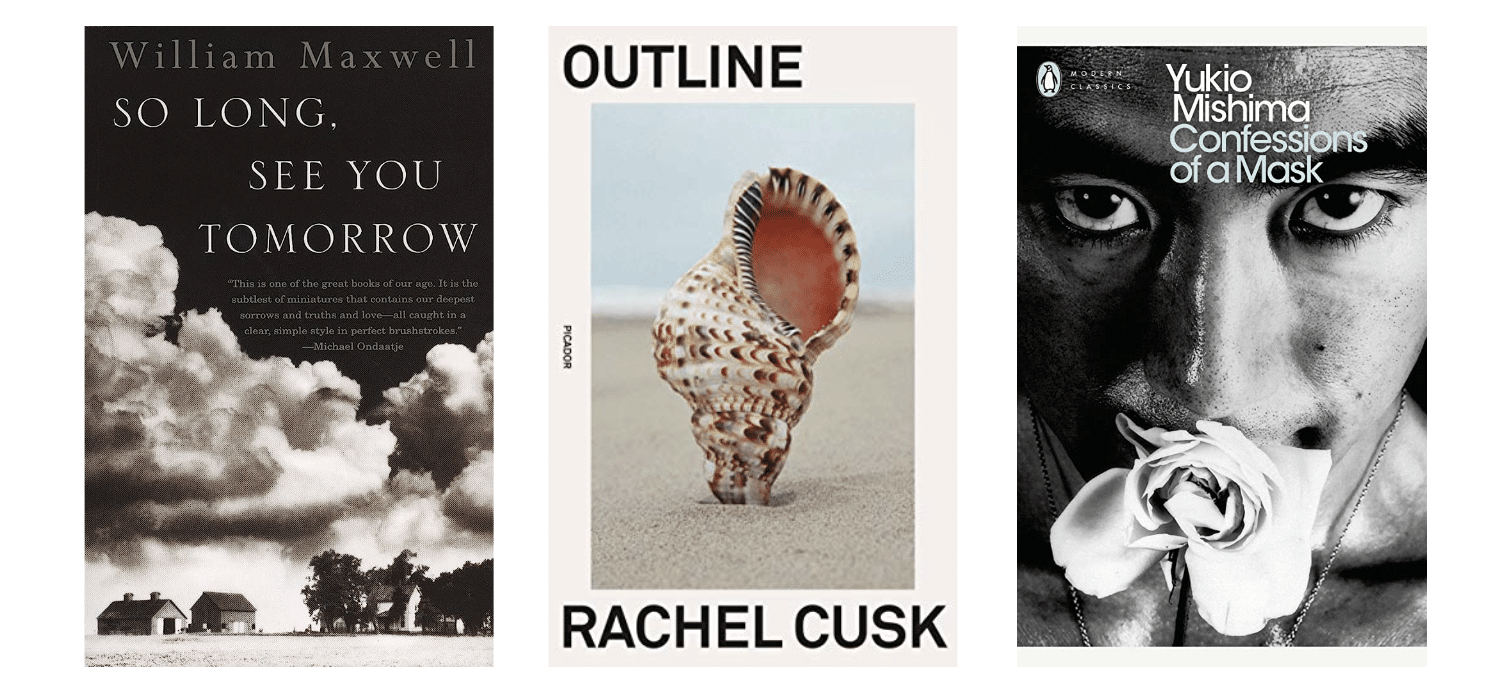
We’re thrilled to introduce the 2023 Oregon Literary Fellowship recipients with individual features on our blog! Out-of-state judges spent several months evaluating the 500+ applications we received, and selected 13 writers and two publishers to receive grants of $3,500 each. Literary Arts also awarded two Oregon Literary Career Fellowships of $10,000 each. Applications for the 2024 Literary Fellowships can be found here.
Grace Chao is pursuing her MFA in fiction at the University of Oregon. She is the winner of The Sewanee Review’s 2022 Fiction Contest, with publication forthcoming in spring 2023. She was also a finalist for the 2022 Iowa Review Award in fiction. She holds a B.A. and M.A. in English from Stanford University, and is currently at work on her first story collection about a Taiwanese American family. She is the recipient of the Writer of Color Career Fellowship in Fiction.
Q&A with Literary Arts
Who are some writers you look up to or who move you to write?
Reading Alice Munro has probably taught me the most about writing within the past few years. I’m fascinated by how thematically layered her stories are, how they gradually fold you into the inner life of a family, how masterfully she can traverse thirty or forty years in a woman’s life within a few pages. “Miles City, Montana” was the first story I read by her.
I’ve also been very moved by Akhil Sharma’s Family Life. It’s a novel about a traumatic subject (the narrator’s brother suffers a life-changing brain injury as a teenager) and based on real-life events, yet it’s remarkably balanced and perceptive. All the details are so well-chosen.
What are your sources of inspiration? Of joy?
My sources of inspiration include childhood memories, stories passed down through my family, other writers’ stories and novels, and movies. I always enjoy studying other mediums, like film, because they can offer a fresh perspective on how to create a distinct character, conflict, mood.
As for what (else) brings me joy: music, movie theaters within walking distance, eating in front of the TV, whimsical graphic design, people with a great sense of humor, having coffee with something sweet.
How would you describe your creative process?
Usually my stories stem from a single image or memory that won’t leave my mind. Then I try to build characters, and a story, around it. My actual writing time for any single story (for a first draft) doesn’t take very long, but the time I spend thinking about how to write it can go on for extended stretches. I write mostly later in the day, and mostly from my bed. I’m trying to break that habit because now it’s so hard for me to fall asleep in that same bed!
What is most exciting about receiving a fellowship?
I’m truly grateful and excited to have my work and project be recognized by the Literary Arts foundation. Beyond the financial support, it makes me even more confident to keep writing the stories that matter so much to me.
What are you currently working on?
I’m working on a story collection oriented around a Taiwanese American family living in the Bay Area. I’m very preoccupied with how time and memory alter perceptions of parent-child relationships.
What has kept you writing?
I just graduated from my MFA program, so I’d be lying if I didn’t say that deadlines help keep me writing! But more generally, writing fiction is how I process what’s happened or influenced me in my past, or what’s happened or happening to people who are in some way connected to me. I am always, always thinking about writing, no matter where I am or what I’m doing.
What advice do you have for future applicants?
My advice would be to submit a piece of writing that you deeply care about (and not just writing that you think others will find interesting or “trendy”). I think you can always tell when there is real emotional weight or consequence at stake, and that’s what moves me most as a reader.

Any book (or movie, album, show, etc.) recommendations?
- Books: So Long, See You Tomorrow by William Maxwell; Outline by Rachel Cusk; Confessions of a Mask by Yukio Mishima
- Stories: “Family Furnishings” by Alice Munro; “Hell-Heaven” by Jhumpa Lahiri; “Superking Son Scores Again” by Anthony Veasna So
- Movies: Jeanne Dielman, 23 Commerce Quay, 1030 Brussels (Chantal Akerman); Yi-Yi (Edward Yang); Tampopo (Juzo Itami); Stranger than Paradise (Jim Jarmusch); Late Spring (Yasujiro Ozu)
Excerpt from Forgetting
The week after Grandfather died, Grandmother woke up with only a quarter of her memory left. It had already been failing, and Alzheimer’s ran like water in our blood, my uncle said, but this time she could not remember that Grandfather had died. My mother and I were still staying over when it happened. “Where is Dennis?” she demanded, looking through their closet and pulling out suit jackets and wool cardigans and throwing them onto the bed. My uncle and mother had to break the news a second time, then a third time, then a fourth. I kept busy by returning the jackets and cardigans, socks and shoes, into their appropriate places. Grandmother picked a plaid hat off the coat stand and placed it on her head while my uncle, exhausted and balding, lied for a fifth time, “He went away in his sleep. He didn’t feel a thing.” I stuck my hand out for Grandfather’s hat and she wouldn’t give it back. She just sobbed anew and started pulling out her hair.
Then she forgot who Grandfather was, only that someone was missing. “The milkman gets an F-minus for attendance!” “Baba forgot to pick me up from school today!” She forgot why she had to get out of bed and what to do while taking a bath. She slipped while getting out of a bath and wore a bandage on her forehead for two weeks. She wanted to celebrate her eighth birthday with Pin the Tail on the Donkey and began requesting that somebody—anybody—take her back home to her parents, but that home was now a Kwik-er Mart that sold egg salad sandwiches for two-fifty. “It’s a pigpen for lowlifes,” my mother had always called it, despite my belief that an egg salad sandwich inside a Kwik-er Picker Biscuit Sandwich tasted like a salty, bulging slice of heaven.
Judge’s Comments
“Grace Chao’s short story is a moving consideration of family, memory, and the vast distances that can exist between individuals. Chao creates an intimate and convincing rendering of childhood with delightful specificity: ‘I didn’t understand how you could insert a blank CD into a computer and it’d exit with songs on it.’ In her work, Chao reminds us that objective truth is nebulous and that even within a small family unit, perception can differ considerably. A deep kindness also pervades the work in the way that Chao navigates the disconnect between generations and explores facets of Taiwanese American identity. By turns tender, painful, and humorous, Chao’s voice stands out as both impressive and necessary.”
-Natasha Rao
“In beautiful, thoughtful, worldly and nature-inflected prose, Grace Chao describes a family’s journeys with such depth and humor. The reader feels themselves a part of this family as they survive and thrive, comedically falling apart and overcoming continually. ”
-Rebecca Lee


